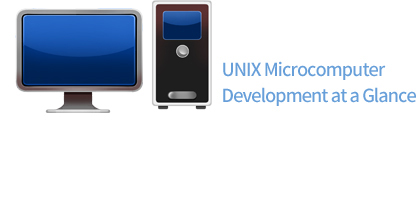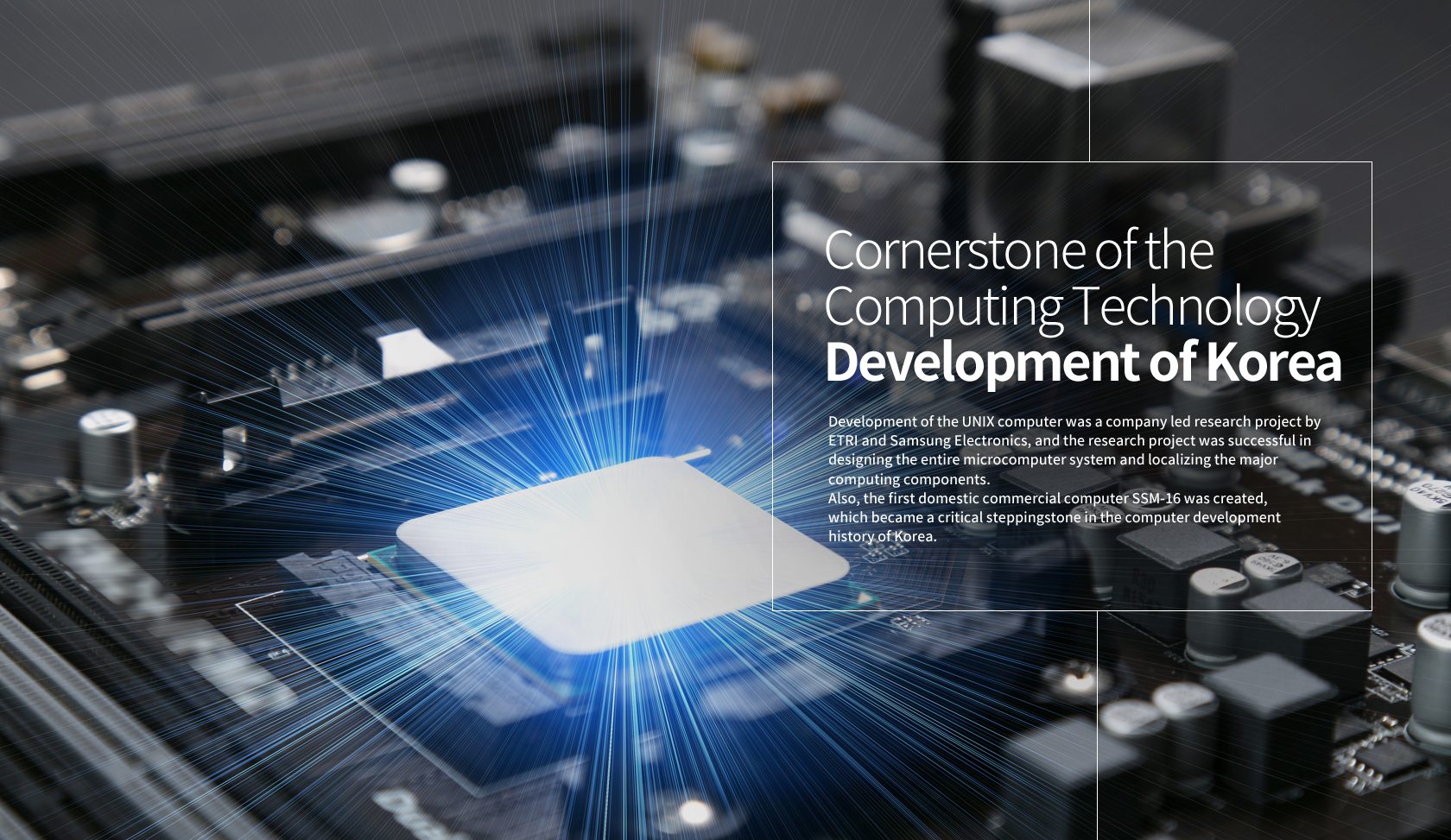
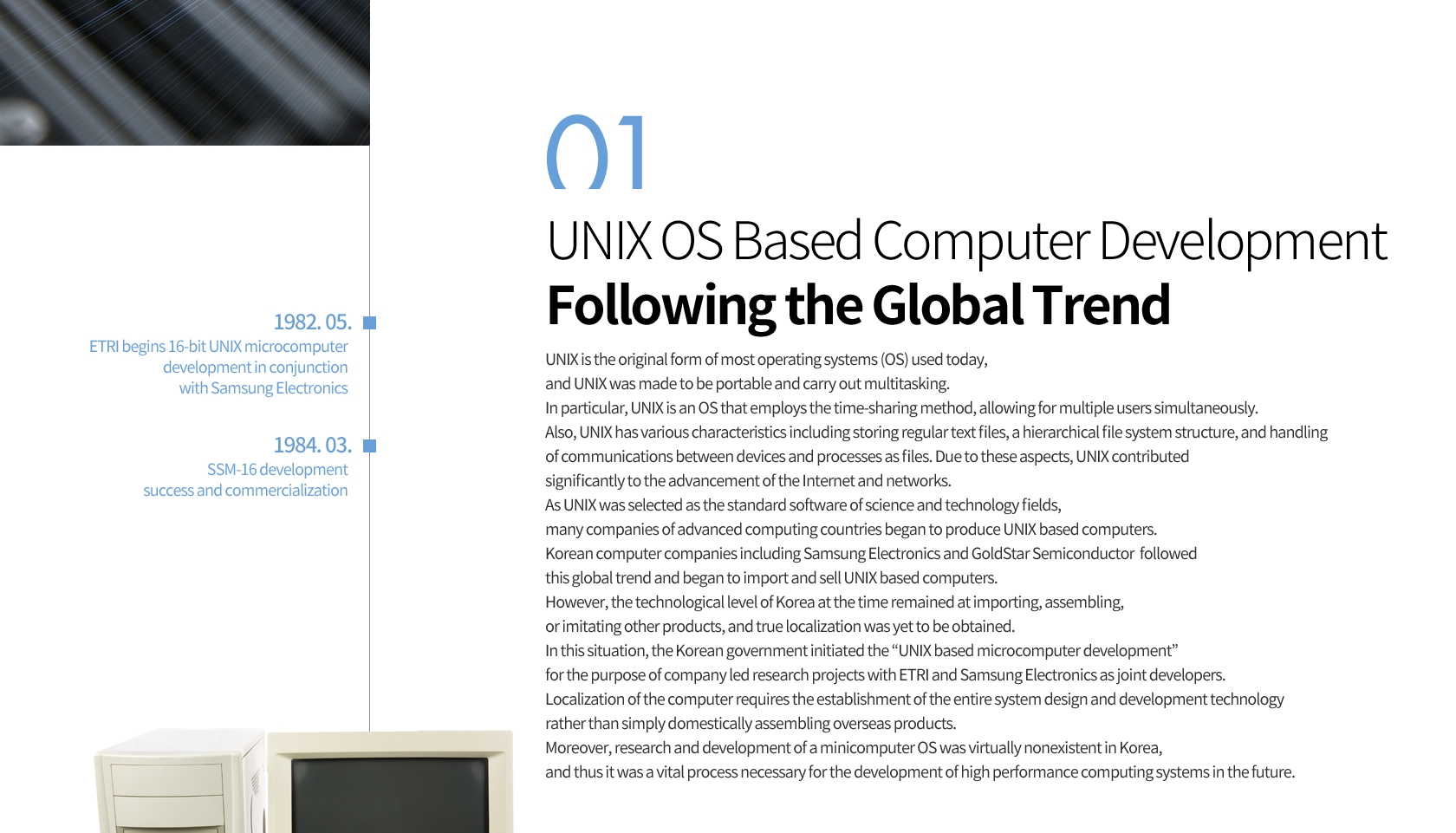
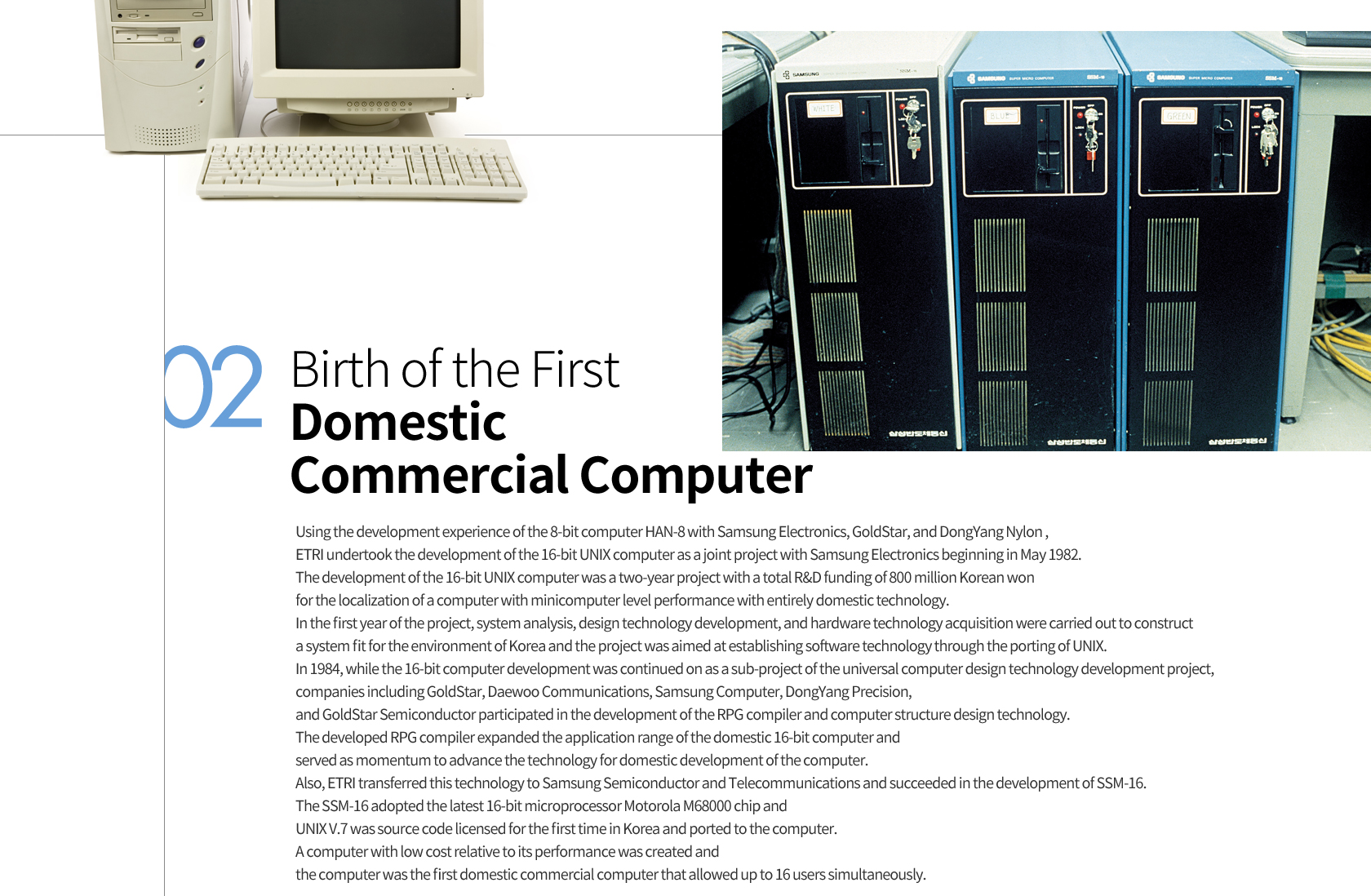
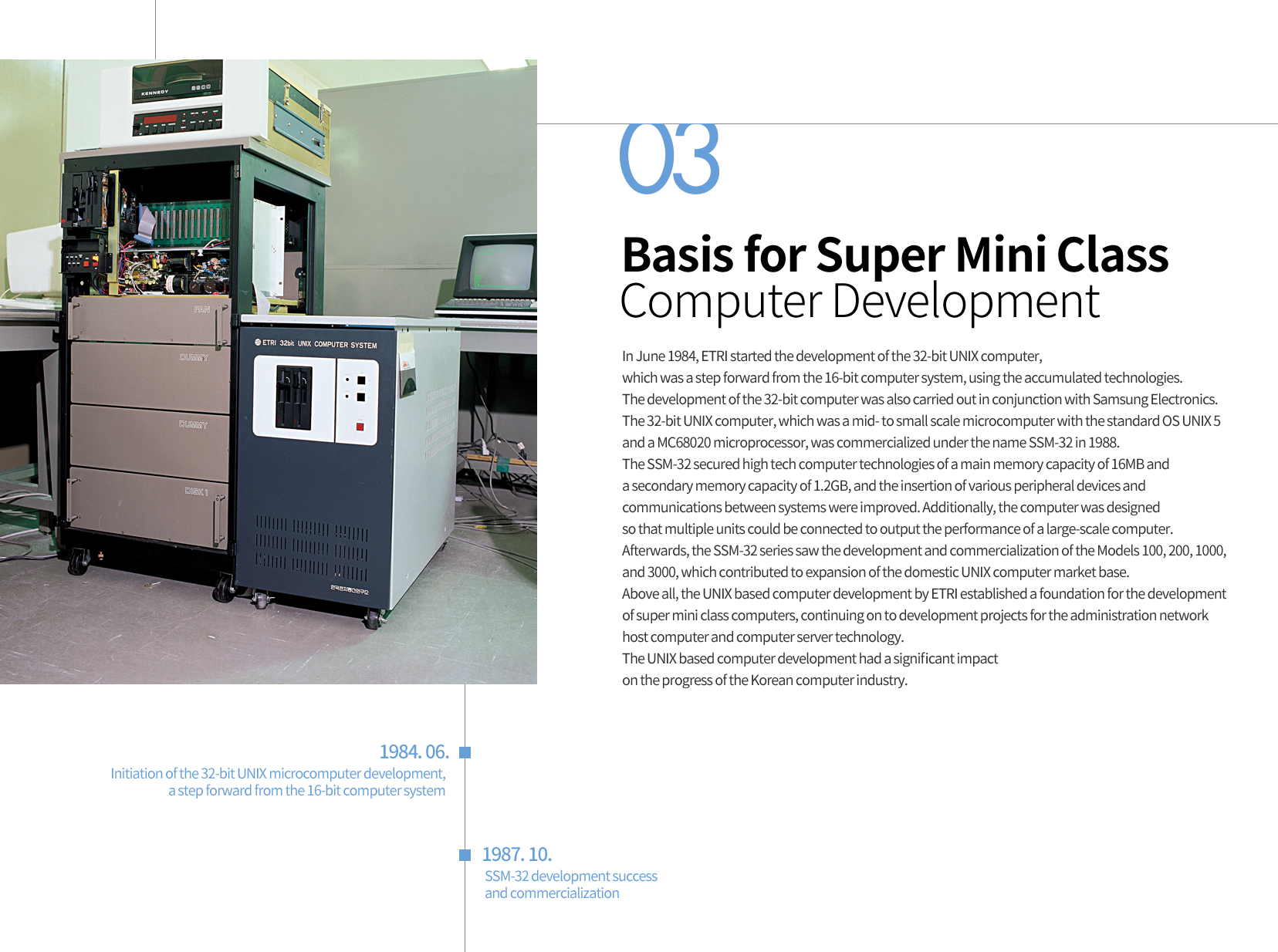
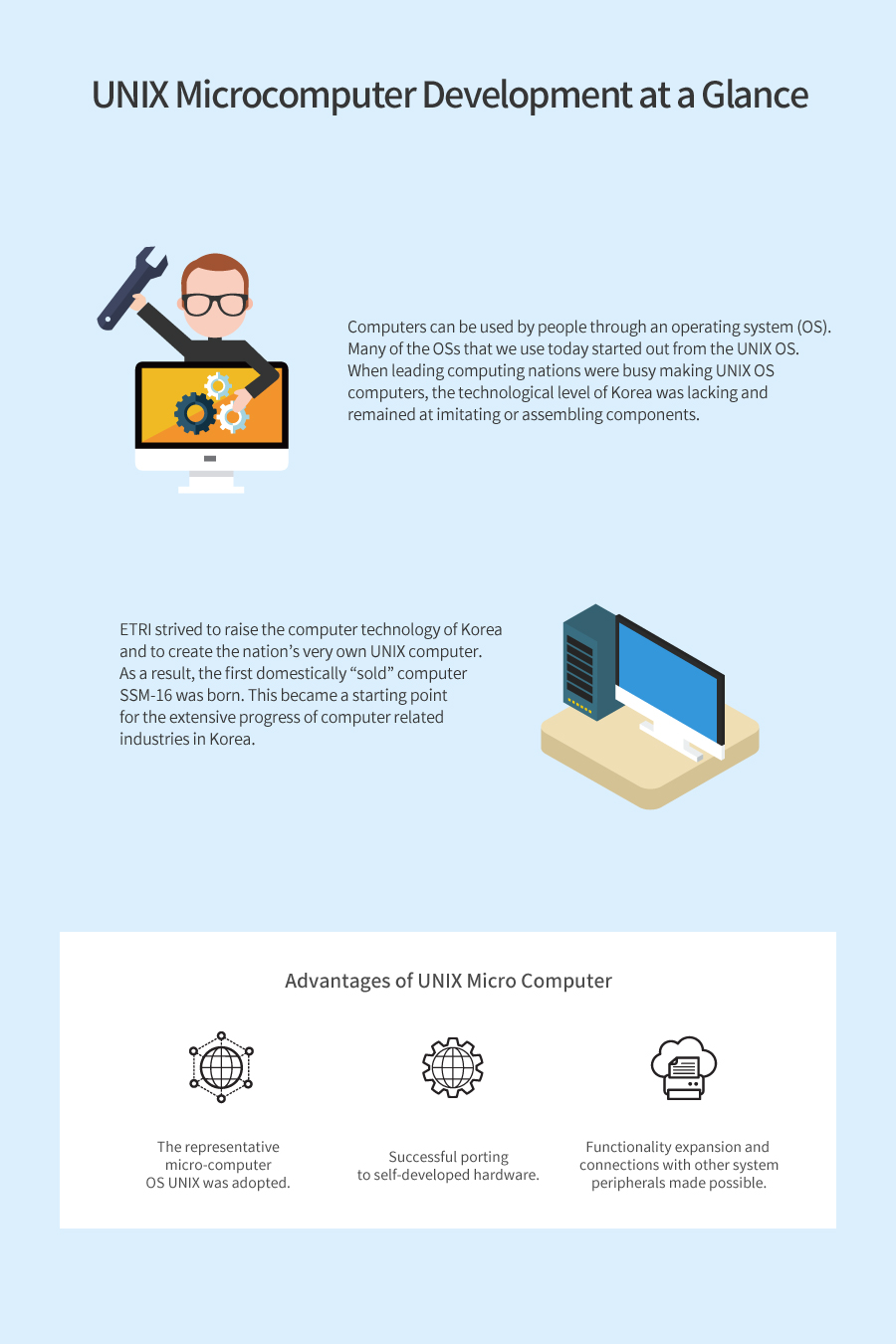
Cornerstone of the
Computing Technology
Development of Korea
유닉스(UNIX) 컴퓨터 개발은 ETRI와 삼성전자가 공동으로 추진한 기업주도 특정연구개발과제로서, 마이크로컴퓨터의 전체 시스템을 설계하고, 컴퓨터의 주요 구성요소들을 국산화하는 데 성공했다. 또한, 국내 최초의 상용 컴퓨터인 ‘SSM-16’을 만들어냄으로써 우리나라 컴퓨터 개발 역사에 중요한 디딤돌이 됐다.
01
UNIX OS Based Computer Development
Following the Global Trend
UNIX is the original form of most operating systems (OS) used today, and UNIX was made to be portable and carry out multitasking. In particular, UNIX is an OS that employs the time-sharing method, allowing for multiple users simultaneously. Also, UNIX has various characteristics including storing regular text files, a hierarchical file system structure, and handling of communications between devices and processes as files. Due to these aspects, UNIX contributed significantly to the advancement of the Internet and networks.
As UNIX was selected as the standard software of science and technology fields, many companies of advanced computing countries began to produce UNIX based computers. Korean computer companies including Samsung Electronics and GoldStar Semiconductor followed this global trend and began to import and sell UNIX based computers. However, the technological level of Korea at the time remained at importing, assembling, or imitating other products, and true localization was yet to be obtained.
In this situation, the Korean government initiated the “UNIX based microcomputer development” for the purpose of company led research projects with ETRI and Samsung Electronics as joint developers.
Localization of the computer requires the establishment of the entire system design and development technology rather than simply domestically assembling overseas products. Moreover, research and development of a minicomputer OS was virtually nonexistent in Korea, and thus it was a vital process necessary for the development of high performance computing systems in the future.
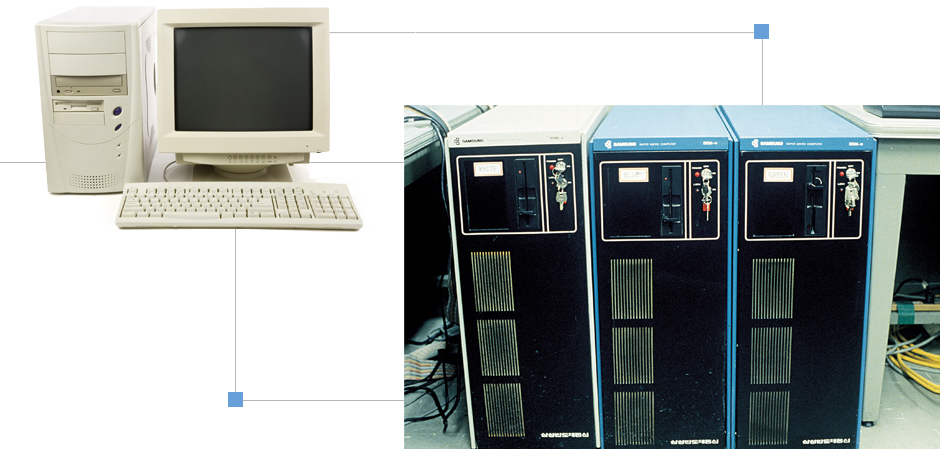
02
Birth of the First Domestic
Commercial Computer
Using the development experience of the 8-bit computer HAN-8 with Samsung Electronics, GoldStar, and DongYang Nylon , ETRI undertook the development of the 16-bit UNIX computer as a joint project with Samsung Electronics beginning in May 1982.
The development of the 16-bit UNIX computer was a two-year project with a total R&D funding of 800 million Korean won for the localization of a computer with minicomputer level performance with entirely domestic technology. In the first year of the project, system analysis, design technology development, and hardware technology acquisition were carried out to construct a system fit for the environment of Korea and the project was aimed at establishing software technology through the porting of UNIX.
In 1984, while the 16-bit computer development was continued on as a sub-project of the universal computer design technology development project, companies including GoldStar, Daewoo Communications, Samsung Computer, DongYang Precision, and GoldStar Semiconductor participated in the development of the RPG compiler and computer structure design technology.
The developed RPG compiler expanded the application range of the domestic 16-bit computer and served as momentum to advance the technology for domestic development of the computer. Also, ETRI transferred this technology to Samsung Semiconductor and Telecommunications and succeeded in the development of SSM-16.
The SSM-16 adopted the latest 16-bit microprocessor Motorola M68000 chip and UNIX V.7 was source code licensed for the first time in Korea and ported to the computer. A computer with low cost relative to its performance was created and the computer was the first domestic commercial computer that allowed up to 16 users simultaneously.
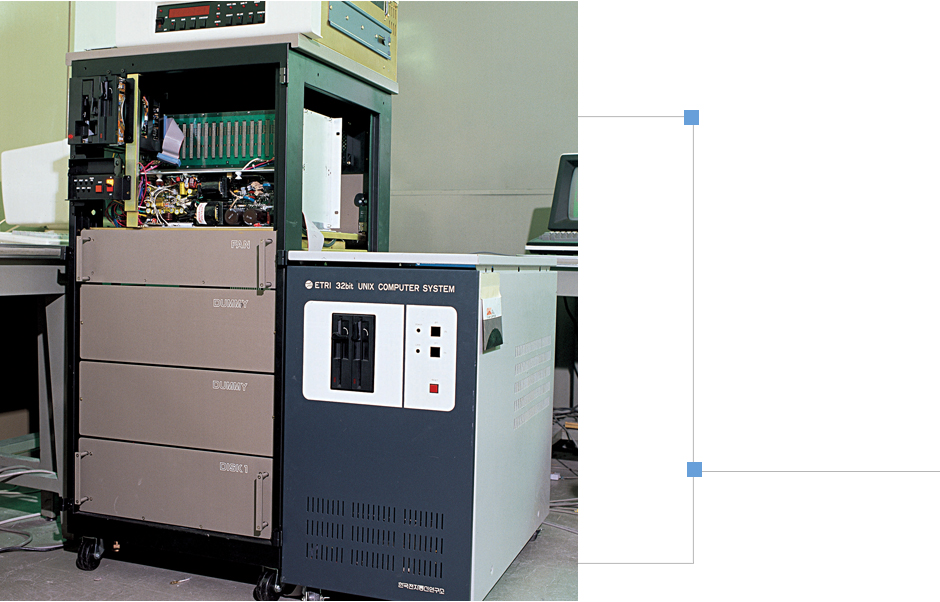
03
Basis for Super Mini ClassComputer Development
In June 1984, ETRI started the development of the 32-bit UNIX computer, which was a step forward from the 16-bit computer system, using the accumulated technologies. The development of the 32-bit computer was also carried out in conjunction with Samsung Electronics. The 32-bit UNIX computer, which was a mid- to small scale microcomputer with the standard OS UNIX 5 and a MC68020 microprocessor, was commercialized under the name SSM-32 in 1988.
The SSM-32 secured high tech computer technologies of a main memory capacity of 16MB and a secondary memory capacity of 1.2GB, and the insertion of various peripheral devices and communications between systems were improved. Additionally, the computer was designed so that multiple units could be connected to output the performance of a large-scale computer. Afterwards, the SSM-32 series saw the development and commercialization of the Models 100, 200, 1000, and 3000, which contributed to expansion of the domestic UNIX computer market base.
Above all, the UNIX based computer development by ETRI established a foundation for the development of super mini class computers, continuing on to development projects for the administration network host computer and computer server technology. The UNIX based computer development had a significant impact on the progress of the Korean computer industry.
- 1982. 05.
- ETRI begins 16-bit UNIX microcomputer development in conjunction with Samsung Electronics
- 1984. 03.
- SSM-16 development success and commercialization
- 1984. 06.
- Initiation of the 32-bit UNIX microcomputer development, a step forward from the 16-bit computer system
- 1987. 10.
- SSM-32 development success and commercialization







